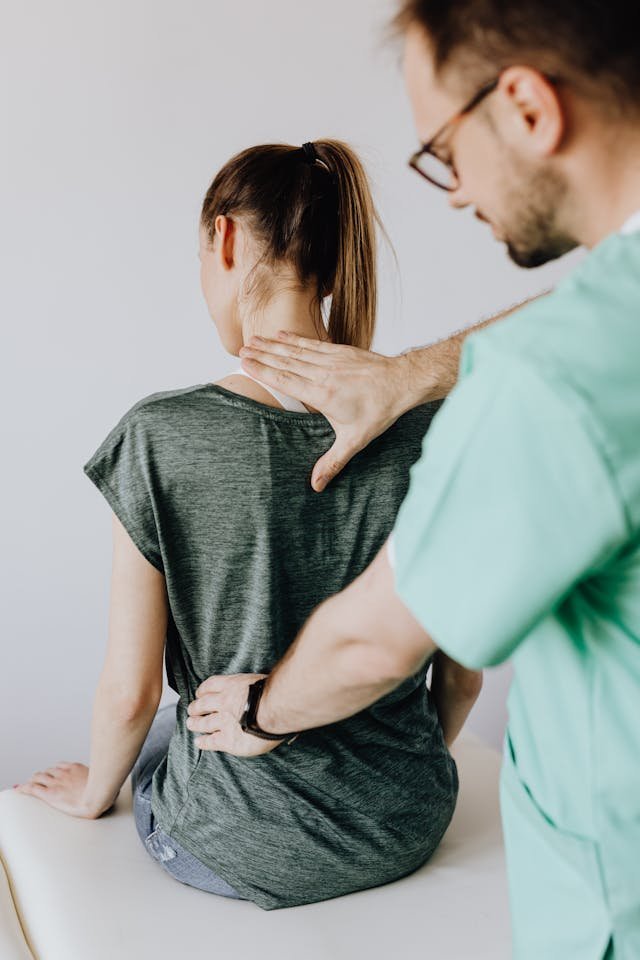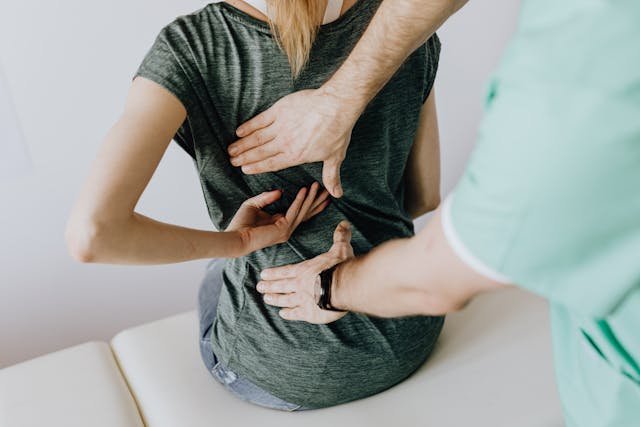CAR ACCIDENT CHIROPRACTIC
Lower Back Pain From a Car Accident: Causes and Treatment


Lower Back Pain From a Car Accident
If you have been in a car accident, you may be experiencing lower back pain. In fact, over 50% of people involved in a car accident experience lower back pain. It’s important to seek treatment promptly to avoid further damage. One effective treatment option is to see a chiropractor. A chiropractor has a thorough understanding of the musculoskeletal system and can analyze your lower back to determine the source of your pain.
The sooner you see your chiropractor, the better. You can expect a series of manual manipulations as your chiropractor targets problem areas in your lower back. When your vertebrae are in alignment, you will find relief.
Manual therapy and other physiotherapies are often recommended as well to help you experience relief. Don’t ignore your back and don’t try to mask your pain with medication. Your chiropractor will be able to provide an effective alternative.
Why Go to the Chiropractor After Lower Back Pain from a Car Accident?
chiropractor can help you recover from lower back pain caused by a car accident. They have a thorough understanding of the musculoskeletal system and will analyze your lower back to determine the source of your pain.
A physical exam and the use of medical imagery will be effective in pinpointing the problem. At that point, your chiropractor can create a treatment plan.
The Sooner You See Your Chiropractor, the Better
Acting promptly after a car accident is crucial. You should see your chiropractor right away to begin treatment before more damage is done. Manual manipulations and massage therapy can provide relief and help you recover faster. It may take several visits to give you optimal results, and you may be given exercises to perform at home to strengthen your back as well.
Give Your Back the Attention it Needs
Don’t ignore your back pain and don’t try to mask it with medication. Your chiropractor will be able to provide an effective alternative. Regular visits to your chiropractor can help you recover from lower back pain caused by a car accident. If you have any legal issues following your car accident, information from your chiropractor visit can be used to prove you have an injury in need of treatment. Give yourself time to experience the benefits of regular visits to your chiropractor.

Frequently Asked Questions
How long does lower back pain from a car accident typically last?
Lower back pain after a car accident can last anywhere from a few days to several weeks or even months. The duration of the pain depends on the severity of the injury and the treatment received. It is important to seek medical attention if the pain persists for more than a few days.
What are the symptoms of lower back whiplash?
Whiplash is a common injury after a car accident and can cause lower back pain. Symptoms of lower back whiplash include stiffness, tenderness, and aching in the lower back area. In some cases, the pain may also radiate down to the legs.
What are the best treatments for lower back pain after a car accident?
The best treatments for lower back pain after a car accident depend on the severity of the injury. Rest, ice, and over-the-counter pain medication can help alleviate pain and inflammation. Physical therapy and chiropractic care can also be effective in treating lower back pain. In some cases, surgery may be necessary.
Is it normal to experience lower back pain weeks after a car accident?
Yes, it is normal to experience lower back pain weeks after a car accident. In some cases, the pain may not manifest immediately and may take a few days or even weeks to appear. It is important to seek medical attention if the pain persists for an extended period of time.
Are there any warning signs that lower back pain after a car accident is serious?
Yes, there are warning signs that lower back pain after a car accident is serious. These include numbness or tingling in the legs, loss of bladder or bowel control, and severe pain that does not respond to medication or other treatments. If you experience any of these symptoms, seek medical attention immediately.
Can lower back pain after a car accident be a sign of a more serious injury?
Yes, lower back pain after a car accident can be a sign of a more serious injury such as a herniated disc, spinal cord injury, or fractured vertebrae. It is important to seek medical attention if the pain persists or if you experience any other symptoms such as numbness or tingling in the legs.
